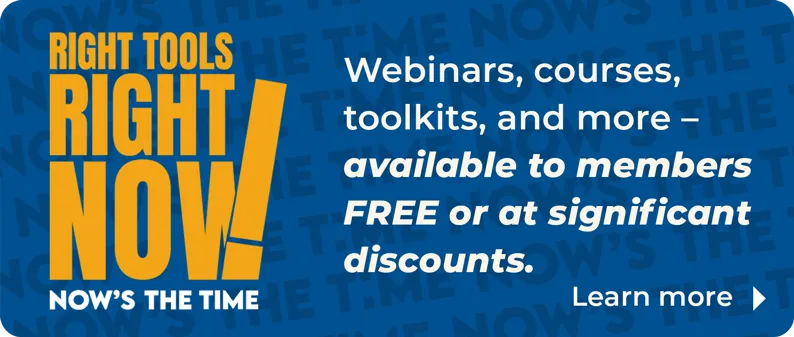Whether a syndication agreement is provided to the MLS, broker, or agent in the form of a contract or a Terms of Use page on the syndicator’s website, it is imperative for data providers to read the fine print and ask questions. This checklist includes a variety of topics and issues a data provider may want to address with the syndicator. This checklist is not exhaustive, but should provide the MLS, broker, or agent with a good foundation for understanding the terms of any syndication agreement.
For the purposes of this checklist, the MLS, broker, or agent providing the data is referred to as “Provider,” the third party receiving the data is referred to as “Syndicator,” the content being licensed to the Syndicator from the Provider is referred to as “Licensed Content,” and the third party that Syndicator re-syndicates or sub-licenses the Licensed Content to is referred to as “Publisher.”
I. Licensed Content
a. What specific data is being licensed by Provider to Syndicator? Is it clearly and narrowly defined? Active listings? Sold data?
b. Is any of the Licensed Content confidential?
i. If so, why is the Provider sending confidential information?
ii. What are Syndicator’s responsibilities with regarding to protecting the confidential information?
c. Can Provider change the definition of Licensed Content, i.e., limit the n7umber of fields or number of listings being provided, during the term of the agreement?
II. Use of Licensed Content
a. What are the terms of the license restricting Syndicator’s use of the Licensed Content?
b. Do the usage terms narrowly address the specific and limited purpose for which Provider is licensing the data? For example, to:
i. Access
ii. Display
iii. Copy or reproduce
iv. Transmit or distribute
v. Transfer to third parties
vi. Create derivative works, products, or services
vii. Sell
viii. Sub-license
ix. Re-syndicate
c. Pay attention to all key words included in the license and understand their implications. For example:
i. Perpetual versus limited
ii. Irrevocable versus revocable
iii. Exclusive versus non-exclusive
iv. Fully paid or royalty-free
d. Does the agreement prohibit Syndicator from using Licensed Content to contact Provider, or Provider’s participants, subscribers, or agents, for marketing purposes?
e. Will Syndicator provide regular reports related to the Licensed Content on Syndicator’s website and/or Publishers’ websites? Such reports may include information about:
i. Which listings have been received by Syndicator
ii. Which ones were rejected or accepted
iii. How duplicate listings were handled
iv. Traffic to the Licensed Content
III. Re-syndication or Sub-licensing Licensed Content
a. Does the agreement prohibit Syndicator from re-syndicating or sub-licensing the Licensed Content to any third party?
b. Must Syndicator get Provider’s written permission prior to re-syndicating or sub-licensing to any third party?
c. If re-syndication or sub-licensing is permitted, are the terms and conditions of such activity clearly and narrowly set forth in this agreement?
d. Who will receive and/or be able to display the Licensed Content in addition to the Syndicator?
i. Does Provider have the ability to control which parties receive or do not receive the Licensed Content?
ii. Can Provider have access to the agreements between Syndicator and Publishers?
e. Are the terms of re-syndication or sub-licensing consistent with the terms of the syndication agreement? (E.g., the Publisher receiving the Licensed Content from Syndicator does not have any rights to use the Licensed in any manner different from the terms set forth in the syndication agreement between Provider and Syndicator.)
f. Do the Publishers have any right to use Licensed Content to create derivative works? For example, can Publishers create automated valuation models, research studies, or lead generation products that can be sold?
i. If so, how is the Licensed Content being used, by whom, and under what conditions?
g. Do the Publishers have the right to re-syndicate or sub-license the Licensed Content?
h. What mechanisms are in place to ensure that the Publishers receiving the Licensed Content keep the content current? For example, are Publishers required to refresh or update data every 24 hours?
i. What mechanisms does Syndicator have in place to ensure compliance by each of the Publishers?
IV. Retaining Rights to and Ownership in Intellectual Property
a. Does the agreement grant Syndicator or Publishers any intellectual property rights or interests in the Licensed Content?
b. Does Syndicator acknowledge Provider’s rights in and ownership of the Licensed Content?
i. Does the agreement clearly set forth that no intellectual property rights are granted thereunder; Provider retains the rights in and ownership of all Licensed Content?
c. If the agreement permits Syndicator to create derivative works, who owns the rights to such derivative works?
d. Are Syndicator and Publishers required to display a copyright notice with the Licensed Content?
e. Does the agreement prohibit Syndicator or Publisher from challenging or taking any action inconsistent with Provider’s rights to the Licensed Content?
V. Security of Licensed Content
a. How will the Licensed Content be delivered to Syndicator? To Publisher?
b. Who has access to the Licensed Content?
i. Employees?
ii. Subcontractors?
iii. Publishers?
c. What are the mechanisms that Syndicator has in place for protecting the Licensed Content from unauthorized access? For preventing screen scraping? For detecting data hackers?
d. What mechanisms does Syndicator have in place to ensure compliance by each of the Publishers?
i. How is the Licensed Content marked, if at all, for tracking? Tagging? Watermarks?
e. Are Syndicator and Publishers responsible for complying with all federal and state privacy and information security laws, including breach notification?
f. Is Syndicator responsible and liable for unauthorized access or misuse of the Licensed Content by any third party, including Publishers?
g. How does Syndicator monitor the security of its systems and the Licensed Content?
h. If Licensed Content is scraped or misused, how will the Syndicator respond? What steps will be taken to address and resolve the problem?
i. Does Provider have the authority to force Syndicator to investigate and respond to alleged violations?
j. What is the Syndicator’s privacy policy?
k. What is the Syndicator’s disaster recovery policy?
VI. Display of Licensed Content on Syndicator or Publisher Websites
a. Are Syndicator and Publishers required to display the source of the Licensed Content in proximity to each listing?
b. How will the Syndicator and Publisher ensure that the Licensed Content is kept current?
i. When is the data updated or refreshed?
ii. Will the date that the listing was last confirmed and updated be displayed with the listing?
iii. What happens if a Publisher fails to keep the Licensed Content current? Will the Publisher’s feed be terminated by Syndicator?
c. What is the process for removing expired or sold listings?
i. How does a Syndicator enforce compliance of that process against Publishers?
ii. How can Provider request that information be removed from Syndicator or Publisher Websites?
d. If Syndicator receives multiple entries for the same property, which entry takes priority? How is that determined?
e. Will advertisements for competitors (or non-listing agents) be displayed near Provider’s Licensed Content?
i. Will Provider’s contact information be displayed prominently near the listing? Will it be displayed more prominently than competitors’?
ii. Does the Syndicator’s website provide a link to Provider’s website along with the display of the Licensed Content?
iii. Are the competitors (or non-listing agents) the default (or preselected) choice for consumer contact?
f. Does the agreement prohibit certain types of content from being displayed near the Licensed Content? (E.g., Offensive, discriminatory, or harassing content.)
g. Under what conditions may Provider suspend or discontinue delivery of the Licensed Content?
VII. Audits and Compliance
a. How will Syndicator ensure compliance with the terms of the agreement? How will Syndicator ensure compliance by Publishers?
b. Are Syndicators and Publishers required to provide periodic (e.g., every 6 months) written certification that the Licensed Content is being used as authorized under the terms of the agreement?
c. Does Provider have the right to audit Syndicator’s systems to ensure compliance with the license restrictions and security measures? If so, under what terms?
d. What are the liquidated damages that Syndicator must pay Provider for unauthorized use or access to the Licensed Content or for any violation of the agreement by Syndicator or Publishers?
VIII. Warranties and Representations
a. Does Syndicator warrant and represent that it will comply with all federal and state laws, including state regulations pertaining to real estate professionals?
b. Does Syndicator warrant and represent that its use of the Licensed Content and that its website and any feature or functionality related to Syndicator’s website does not infringe an intellectual property right of any third party?
IX. Indemnification
a. Does Syndicator agree to indemnify Provider from any claims related to Syndicator’s or Publishers’ display or use of the Licensed Content?
b. Does Syndicator agree to indemnify Provider from any claims that Syndicator or Publisher infringes the intellectual property right of any third party -- including patent infringement?
c. Does Syndicator’s obligation to indemnify extend past termination of the agreement?
X. Amendments
a. How can the agreement be amended?
i. Is Syndicator required to provide notice to Provider if the terms or conditions of the agreement are changed?
ii. Is Provider’s written consent required for any modification of the syndication agreement?
XI. Term and Termination
a. What is the term of the syndication agreement? Does it auto renew?
b. How can the agreement be terminated?
i. May Provider terminate at any time for any reason?
ii. May Provider terminate feeds to Publishers at any time for any reason?
c. What happens to the Licensed Content after termination? Is it destroyed?
d. How will Syndicator ensure that Syndicator and Publishers will be unable to access, use, or retain any Licensed Content upon termination of the syndication agreement?








